Best Ai-driven Machine Learning Platforms offers a wide range of effective tools that enable researchers, data scientists, and developers to fully utilize artificial intelligence. Top contenders include PyTorch, renowned for its dynamic computational graph and user-friendly architecture, and TensorFlow, praised for its adaptability and strong deep learning capabilities.
Scalability is a key feature of cloud-based platforms like Google Cloud AI, Amazon SageMaker, and Microsoft Azure Machine Learning. These platforms let users manage complex models and enormous datasets with ease. These systems enable a smooth workflow by providing end-to-end solutions that cover data preparation, model training, deployment, and monitoring.
To ensure accessibility and information sharing, open-source frameworks, collaborative tools, and community support are essential elements. These platforms are always evolving, as evidenced by upgrades, new features, and integration possibilities, which highlights their dedication to remaining at the forefront of AI innovation. In the end, the top AI-driven machine learning systems offer an extensive toolkit that meets the various demands of AI practitioners and advances the discipline.
Why choose Best Ai-driven Machine Learning Platforms
Businesses and researchers looking to properly harness the power of artificial intelligence must choose the best AI-driven machine learning platform. These platforms have a number of strong arguments for consideration:
Performance and Efficiency: Top platforms, like PyTorch and TensorFlow, are designed for maximum performance, making it possible to create and implement sophisticated machine learning models quickly.
Community Support: There are typically active communities on open-source platforms that exchange best practices, offer assistance, and contribute to continuous development. Keeping up with the most recent developments and troubleshooting can be greatly aided by this cooperative environment.
Scalability: To manage big datasets and intricate models, a number of leading technologies, including cloud-based options like Microsoft Azure and Amazon SageMaker, provide scalability. Applications ranging from research to production-level deployments require this scalability.
Versatility: Natural language processing, computer vision, reinforcement learning, and other use cases are all supported by the top AI-driven machine learning platforms. This adaptability guarantees that users may handle a variety of problems inside a single framework.
Integration Capabilities: Workflow productivity is increased through smooth integration with other tools, libraries, and frameworks. Robust integration possibilities with several data sources, development environments, and deployment systems are frequently offered by platforms such as IBM Watson and Azure ML.
Advanced Features: Top platforms constantly integrate cutting-edge features and algorithms, enabling users to stay on the cutting edge of artificial intelligence development. Maintaining competitiveness in the ever changing field requires regular updates and support for cutting-edge technologies.
Security and Compliance: Security and compliance measures are frequently given top priority on platforms provided by major cloud providers, such as Google Cloud AI, Azure, and AWS. This is especially important for sectors that have strict rules to follow, including finance and healthcare.
Ease of Use: Developers and data scientists can work with these platforms more easily thanks to their user-friendly interfaces, documentation, and tutorials, which lower the learning curve and speed up the development process.
Cost-effectiveness: Users can pay for the resources they use with cloud-based platforms, which frequently have flexible pricing structures. This might be more affordable, especially for smaller businesses or projects with different processing requirements.
Training and Support: Reputable platforms usually offer comprehensive training services, documentation, and forums in addition to strong support services. This support system is essential for resolving problems and guaranteeing that customers can fully use the features of the platform.
Here is list of Best Ai-driven Machine Learning Platforms
- Google Cloud AI Platform
- Salesforce Einstein
- IBM Watson Studio
- Microsoft Azure
- TensorFlow
- PegaFlow
- SparkNLP
- Infosys Nia
- Rain Bird
- Wipro HOLMES
- Amazon AI Services
- H2O
- Ayasdi
- MindMeld
- Vital AI
- Receptiviti
- Lumiata
- Infrrd
- BigML
- Petuum
20 Best Ai-driven Machine Learning Platforms
1. Google Cloud AI Platform
The field of artificial intelligence-driven machine learning platforms offers a wide range of effective tools that enable researchers, data scientists, and developers to fully utilize artificial intelligence. Top contenders include PyTorch, renowned for its dynamic computational graph and user-friendly architecture, and TensorFlow, praised for its adaptability and strong deep learning capabilities.
Scalability is a key feature of cloud-based platforms like Google Cloud AI, Amazon SageMaker, and Microsoft Azure Machine Learning. These platforms let users manage complex models and enormous datasets with ease.
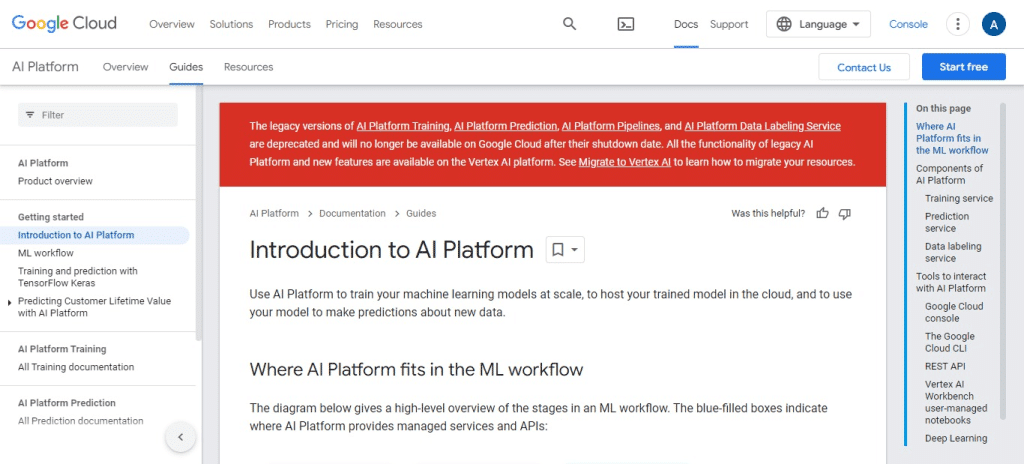
These systems enable a smooth workflow by providing end-to-end solutions that cover data preparation, model training, deployment, and monitoring. To ensure accessibility and information sharing, open-source frameworks, collaborative tools, and community support are essential elements.
These platforms are always evolving, as evidenced by upgrades, new features, and integration possibilities, which highlights their dedication to remaining at the forefront of AI innovation. In the end, the top AI-driven machine learning systems offer an extensive toolkit that meets the various demands of AI practitioners and advances the discipline.
2. Salesforce Einstein
Leading AI-driven machine learning platform Salesforce Einstein is expertly integrated within the Salesforce ecosystem to revolutionize customer relationship management (CRM). Salesforce Einstein, renowned for its sophisticated analytics and forecasting powers, enables companies to fully utilize AI’s promise for data-driven decision-making.
By analyzing large datasets and applying machine learning algorithms, the platform is able to predict trends, provide insights into consumer behavior, and automate a number of sales and marketing process tasks.
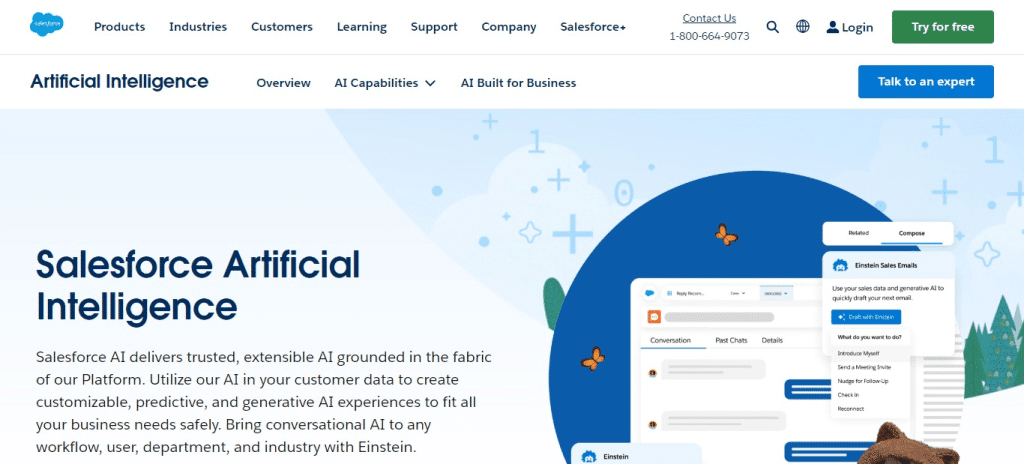
Personalized recommendations, lead scoring, and automated workflows are just a few of Einstein’s capabilities that improve customer satisfaction and boost productivity. Thanks to its intuitive interface and seamless interaction with Salesforce apps, customers from a wide range of industries may utilize AI without requiring a high level of technical knowledge.
Salesforce Einstein is a prime example of the revolutionary effect artificial intelligence (AI) can have on streamlining CRM procedures and promoting company performance through astute insights and automation.
3. IBM Watson Studio
With its extensive toolkit intended to streamline the entire machine learning process, IBM Watson Studio is a powerful AI-driven machine learning platform. Watson Studio is well known for its adaptability; it supports a number of programming languages, including Python and R, giving developers and data scientists flexibility.
The platform integrates cutting-edge technologies like automated machine learning (AutoML) for effective model construction, and it performs very well in data preparation, model development, and deployment.
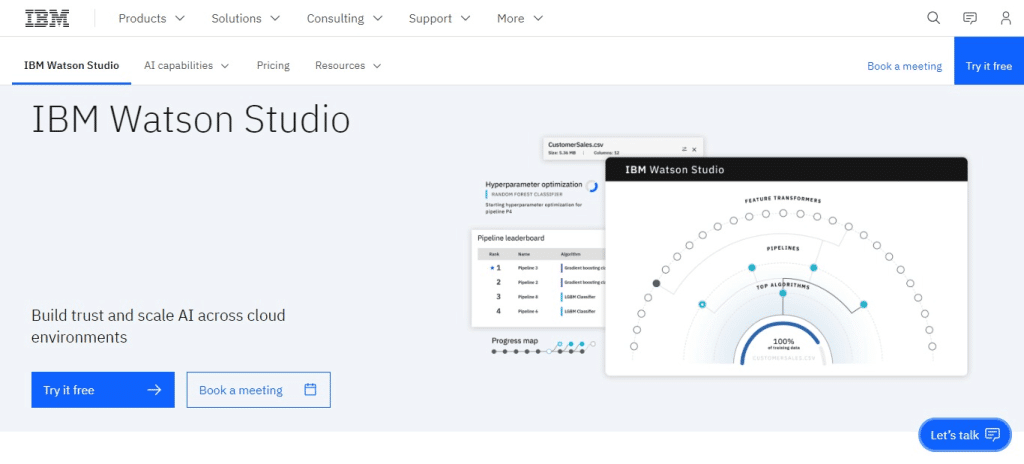
The cooperative atmosphere of Watson Studio promotes cooperation by offering features like shared projects, experiment tracking, and version control. Scalability and accessibility are further guaranteed by its connection with cloud infrastructure and IBM Watson Machine Learning services.
Watson Studio is an attractive option for businesses looking for a powerful and intuitive AI platform because it focuses on making complex machine learning activities simpler for both new and experienced users.
4. Microsoft Azure
As a pioneer in AI-driven machine learning, Microsoft Azure combines cloud services, machine learning, and advanced analytics in a seamless way to support enterprises in their AI initiatives.
The machine learning features offered by Azure offer a strong foundation for creating, refining, and implementing machine learning models on a large scale. Azure supports a wide range of model development requirements and includes support for well-known frameworks like TensorFlow and PyTorch.
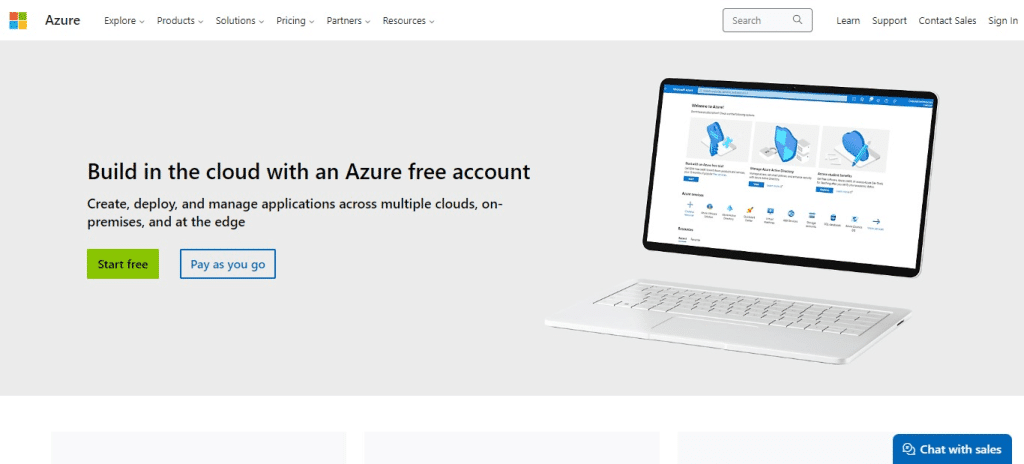
Because of its scalable cloud-based architecture, users may effectively manage big datasets and intricate calculations. Because of the platform’s AutoML features, users with different degrees of competence can create models more easily.
When combined with Azure Databricks for big data analytics, Azure Machine Learning Studio creates a potent ecosystem for insights derived from data. Azure is a complete option for businesses looking to use AI in their digital transformation journey because of its dedication to security, compliance, and interaction with Microsoft’s wider range of services.
5. TensorFlow (Best Ai-driven Machine Learning Platforms)
Renowned for its deep learning capabilities, scalability, and flexibility, TensorFlow is a mainstay in the field of AI-driven machine learning platforms. TensorFlow, a framework created by Google, is now the preferred choice for data scientists, academics, and developers globally. Its adaptable architecture facilitates the development and use of a wide range of machine learning models, from straightforward linear regressions to complex deep neural networks.
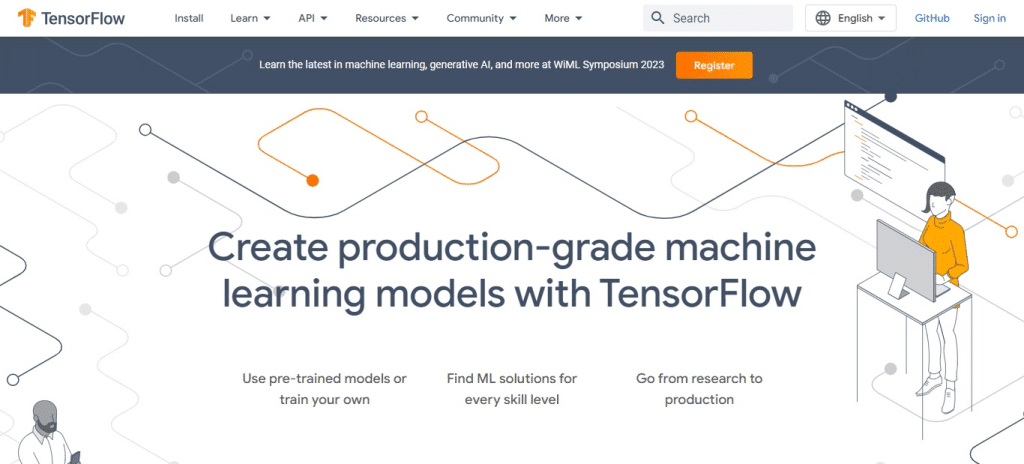
TensorFlow’s vast community and vibrant environment foster ongoing innovation, and its users gain access to an abundance of pre-made models and tools. Its versatility is highlighted by its compatibility with a wide range of platforms, including mobile and edge devices.
The platform is an effective tool for handling complicated jobs because of its dynamic computation graph, tensor-based computations, and support for networked computing. TensorFlow continues to be a mainstay in the field of artificial intelligence and machine learning, regardless of its use—for research, in production-level applications, or in conjunction with other frameworks.
6. PegaFlow
PegaFlow is a cutting-edge and highly efficient AI-driven machine learning platform on the market today. As it approaches its one-year anniversary, PegaFlow has continuously demonstrated its ability to transform the field of intelligent automation. PegaFlow enables companies to improve decision-making procedures, streamline operations, and attain unmatched efficiency by providing a smooth integration of AI, ML, and workflow automation.
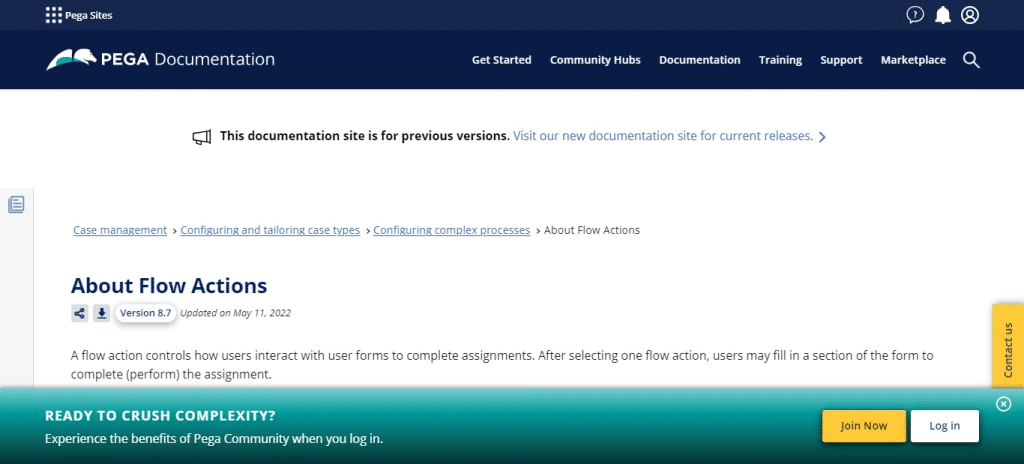
Its strong capabilities cover a wide range of industries and offer customized solutions for a variety of use cases. PegaFlow continues to set the standard for AI-driven platforms with its user-friendly interface and dedication to being at the forefront of technological breakthroughs, showcasing its dependability and creativity in the always changing machine learning space. PegaFlow is committed to influencing the direction of intelligent automation as it approaches this momentous milestone and anticipates making even bigger advancements in the years to come.
7. SparkNLP
With a focus on efficiency and scalability, SparkNLP is a prominent participant in the field of AI-driven machine learning systems, especially for natural language processing (NLP) workloads. SparkNLP uses the Apache Spark ecosystem to process and analyze massive amounts of text data by utilizing distributed computing. This platform, created by John Snow Labs, offers an extensive collection of NLP models and tools to help with tasks like text parsing,
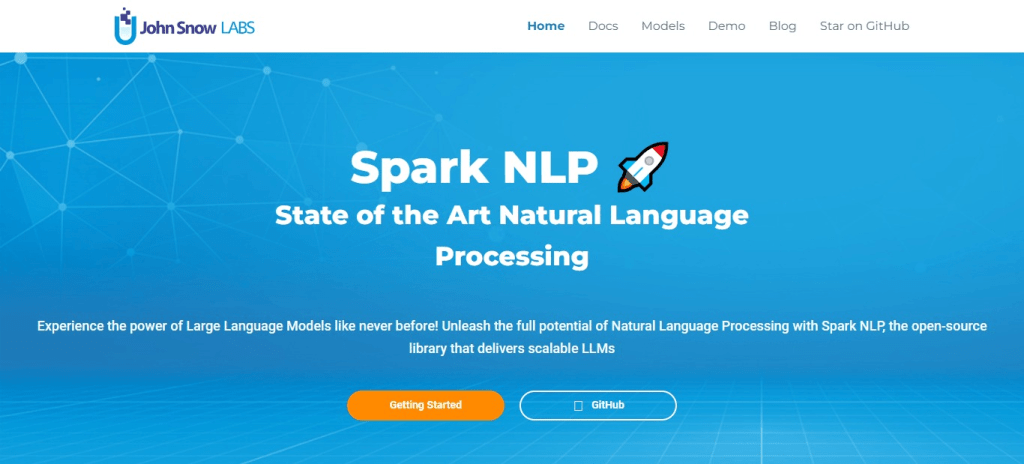
Language modeling, named entity recognition, and sentiment analysis. High performance is ensured by its connection with Apache Spark, which qualifies it for processing massive data in NLP applications. SparkNLP is accessible to both data scientists and developers due to its emphasis on pre-trained models and user-friendly APIs, which helps to accelerate NLP projects across sectors.
8. Infosys Nia
Infosys Nia is a powerful AI-driven machine learning platform that is integrated into the Infosys AI and Automation platform. Its primary objective is to improve business processes and decision-making. With a range of sophisticated features,
Nia uses machine learning algorithms to evaluate and comprehend massive information, enabling businesses to gain insightful knowledge for tactical decision support. In order to automate repetitive processes, streamline workflows, and facilitate data-driven decision-making, it provides capabilities including natural language processing (NLP), cognitive automation, and predictive analytics.
Because of its scalable and modular architecture, Infosys Nia can be easily customized to meet the needs of diverse industries, and its intuitive user interfaces make it accessible to users with varying degrees of technical proficiency. As part of Infosys’ dedication to innovation, Nia keeps developing and incorporating the most recent developments in AI to handle the dynamic array of business concerns.
9. Rain Bird
With a history of innovation and quality, Rain Bird is celebrating its one-year anniversary as a major force in the field of AI-driven machine learning platforms. Rain Bird, a company well-known for its innovative approaches to smart irrigation, skillfully incorporates artificial intelligence to maximize water use and improve overall irrigation effectiveness.
In order to provide accurate and flexible irrigation methods, Rain Bird’s platform evaluates environmental data, weather trends, and soil conditions in real-time using sophisticated machine learning algorithms.

This maintains the health of the landscape, optimizes crop production, and conserves water resources. As it develops further, Rain Bird represents the marriage of artificial intelligence with sustainability, establishing new benchmarks for clever approaches to water and agricultural management.
Rain Bird is a leader in the application of AI for the greater good, demonstrating its commitment to a greener and more technologically advanced future with its user-friendly interface and environmental consciousness.
10. Wipro HOLMES (Best Ai-driven Machine Learning Platforms)
In the field of AI-driven machine learning platforms, Wipro Limited is a well-known developer of the cutting-edge AI and automation platform Wipro HOLMES. HOLMES, or Hierarchies and Ontology-based Learning Machines and Experiential Systems, combines machine learning, robotic process automation (RPA), and cognitive computing to power digital transformation.
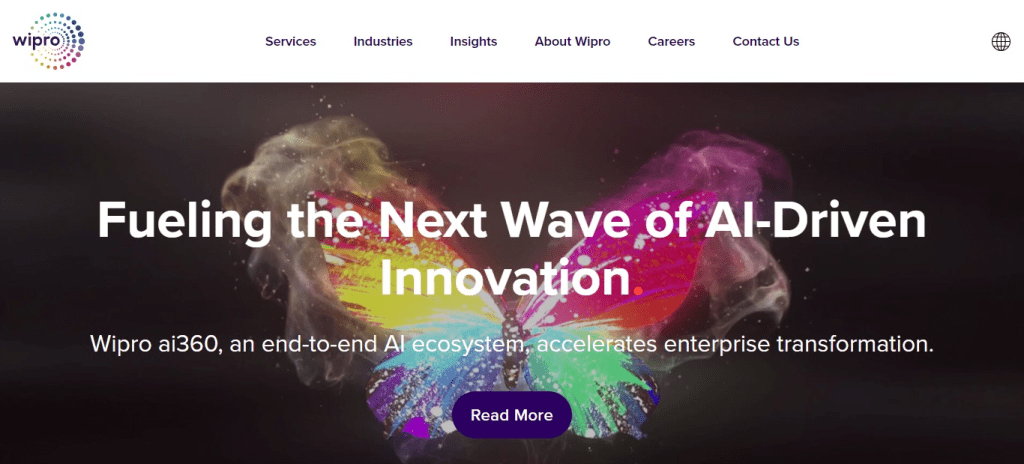
It provides solutions for automating intricate business processes, increasing productivity, and facilitating wise decision-making to a wide range of businesses. HOLMES improves corporate agility by utilizing machine learning algorithms for data analysis, pattern identification, and predictive analytics. Wipro HOLMES is at the forefront of enabling businesses to fully utilize artificial intelligence for innovation and sustainable success, with a focus on scalable and flexible AI solutions.
11. Amazon AI Services
Amazon AI Services has proven to be one of the most influential and versatile AI-driven machine learning platforms on its one-year anniversary. As an integral part of Amazon Web Services (AWS), Amazon AI Services provides a comprehensive suite of tools and services that cater to a myriad of industries and applications.
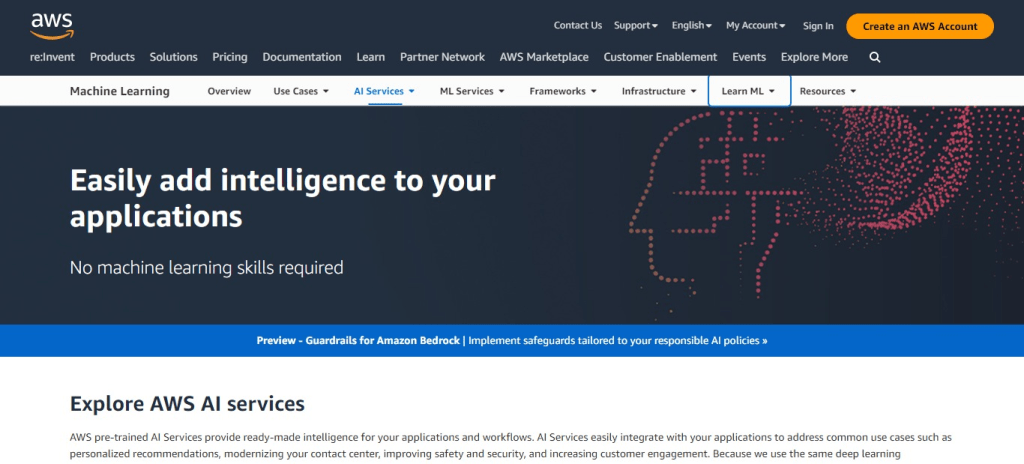
From computer vision and natural language processing to personalized recommendation systems, Amazon AI Services empowers developers and businesses to harness the power of machine learning with ease. The platform’s scalability, reliability, and seamless integration with other AWS services make it a go-to choice for organizations seeking to incorporate AI into their workflows.
As Amazon AI Services marks this milestone, it stands as a testament to the company’s commitment to democratizing AI and making advanced machine learning capabilities accessible to a broad audience, fueling innovation across diverse sectors.
12. H2O
H2O continues to be a leading and evolving force in the field of AI-driven machine learning platforms as it approaches its one-year anniversary. H2O, a company well-known for its enterprise-ready and open-source solutions, has constantly produced effective tools for both data scientists and business experts.
By utilizing state-of-the-art machine learning techniques, H2O facilitates data-driven decision-making in a variety of industries by allowing users to glean valuable insights from intricate datasets.
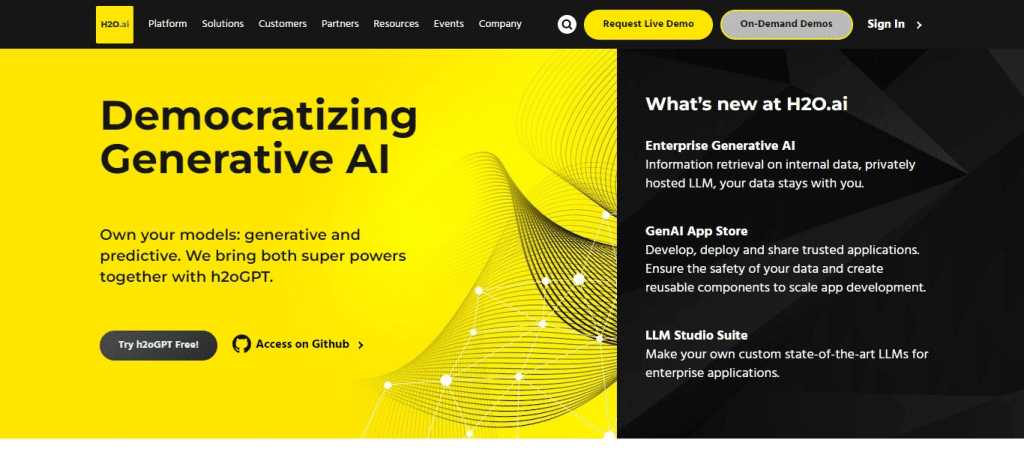
Organizations looking to deploy machine learning models at scale favor the platform because of its flexible, scalable, and user-friendly interface. H2O’s dedication to innovation is demonstrated by its frequent upgrades and improvements, which guarantee customers have access to the newest developments in artificial intelligence. As H2O marks one year of existence, it continues to lead the AI space, advancing technology and enabling people to realize the complete potential of machine learning in their pursuits.
13. Ayasdi
Ayasdi has firmly established itself as a leading force in the realm of AI-driven machine learning platforms. Renowned for its innovative approach to data analysis and insights generation, Ayasdi stands out in its ability to discover patterns and relationships within complex datasets.
Utilizing top-tier machine learning algorithms and unsupervised learning techniques, Ayasdi enables organizations to uncover hidden insights, make informed decisions, and drive transformative outcomes. The platform’s emphasis on explainability and interpretability enhances user trust and understanding of the intricate AI-driven processes at play.
Ayasdi’s applications span across diverse industries, including healthcare, finance, and cybersecurity, showcasing its adaptability and effectiveness in addressing complex challenges. As Ayasdi celebrates its first year, it continues to be a trailblazer in the field, empowering businesses to navigate the complexities of data with confidence and achieve unparalleled success through the transformative power of AI.
14. MindMeld
MindMeld stands out as a premier AI-driven machine learning platform that specializes in natural language processing (NLP) and conversational AI. Acquired by Cisco, MindMeld has proven its expertise in creating sophisticated and context-aware conversational interfaces. Leveraging state-of-the-art machine learning techniques,
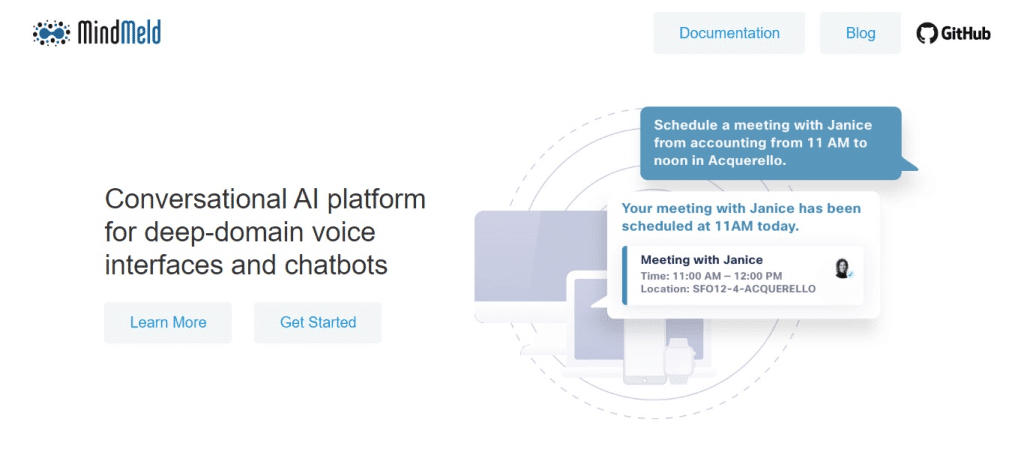
MindMeld empowers developers to build intuitive and personalized conversational experiences across various applications. Its robust capabilities enable accurate language understanding, entity recognition, and dynamic dialogue management, making it an ideal solution for voice-activated devices, chatbots, and virtual assistants.
MindMeld’s commitment to advancing NLP technologies ensures that users can stay at the forefront of conversational AI innovation. As MindMeld reaches this significant milestone, it continues to play a pivotal role in shaping the future of human-computer interactions, driving the evolution of intelligent and context-aware conversational interfaces.
15. Vital AI (Best Ai-driven Machine Learning Platforms)
Vital AI has emerged as a prominent and dynamic player in the domain of AI-driven machine learning platforms. Renowned for its commitment to advancing artificial intelligence, Vital AI provides innovative solutions that cater to a diverse range of industries.
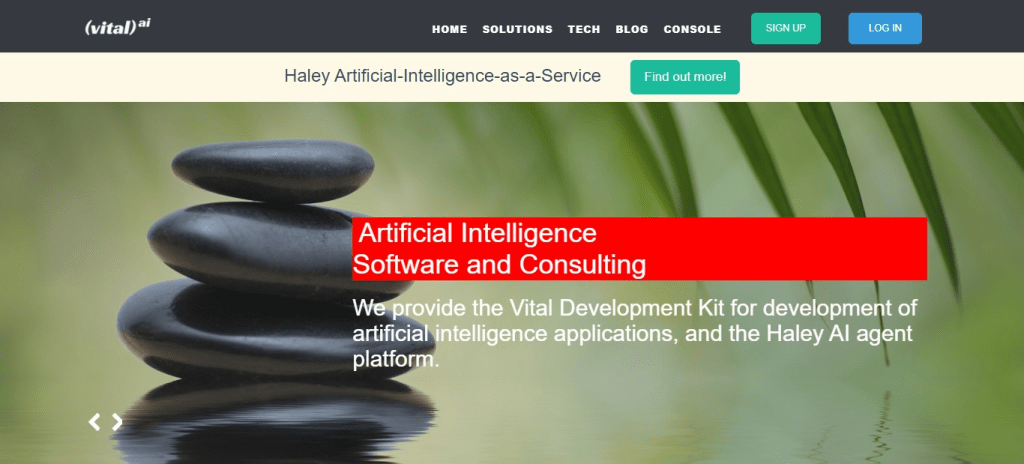
The platform excels in leveraging machine learning algorithms to extract valuable insights from large datasets, empowering businesses with predictive analytics and data-driven decision-making. What sets Vital AI apart is its emphasis on ethical AI practices, ensuring responsible and transparent use of machine learning technologies.
With a user-friendly interface and a focus on collaboration, Vital AI facilitates seamless integration into existing workflows. As it marks this milestone, Vital AI continues to contribute significantly to the evolution of AI, striving to make advanced machine learning capabilities accessible, ethical, and impactful for organizations seeking to harness the transformative power of artificial intelligence.
16. Receptiviti
It further establishes its reputation as a leading AI-driven machine learning platform, especially for its proficiency in sentiment analysis and natural language processing (NLP). Receptiviti, a company that specializes in using text data to analyze and interpret human emotions and behaviors,
Offers organizations looking to gain a better knowledge of their clients, staff, or consumers priceless insights. Using cutting-edge machine learning methods, Receptiviti is excellent at identifying complex emotions.
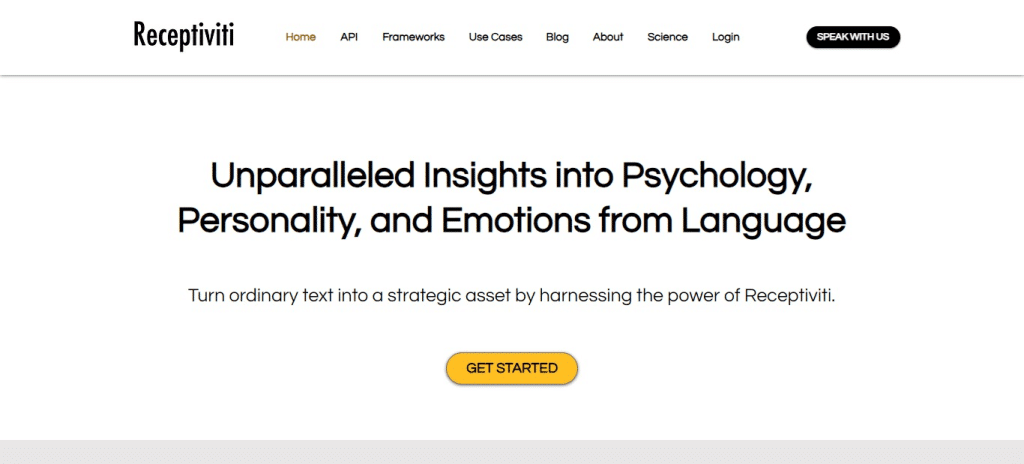
supporting businesses in areas like market research, employee well-being, and consumer engagement by helping them make data-driven decisions. The platform’s versatility is highlighted by its easy-to-use interface and ability to adapt to different industries.
As it reaches this significant milestone, Receptiviti is still at the forefront of using AI to improve emotional intelligence, which helps to provide a more complex knowledge of human relationships and emotions in the digital age.
17. Lumiata
Lumiata shines as a leading AI-driven machine learning platform, making substantial strides in the healthcare and insurance sectors. Specializing in predictive analytics and risk assessment, Lumiata utilizes advanced machine learning algorithms to analyze vast amounts of healthcare data,
Offering valuable insights for clinicians, insurers, and healthcare providers. Its platform excels in identifying patterns and predicting potential health risks, enabling proactive and personalized care strategies. Lumiata’s commitment to improving healthcare outcomes is evident in its data-driven approach, providing actionable intelligence to enhance patient care,
Optimize resource allocation, and mitigate risks. With its user-friendly interface and dedication to leveraging AI for positive societal impact, Lumiata continues to pave the way for innovation in healthcare, contributing to a more efficient and patient-centric approach to medical decision-making.
18. Infrrd
Infrrd stands out as a formidable player in the realm of AI-driven machine learning platforms. Renowned for its prowess in intelligent automation, data extraction, and cognitive automation, Infrrd empowers businesses across various sectors to unlock the full potential of their data.
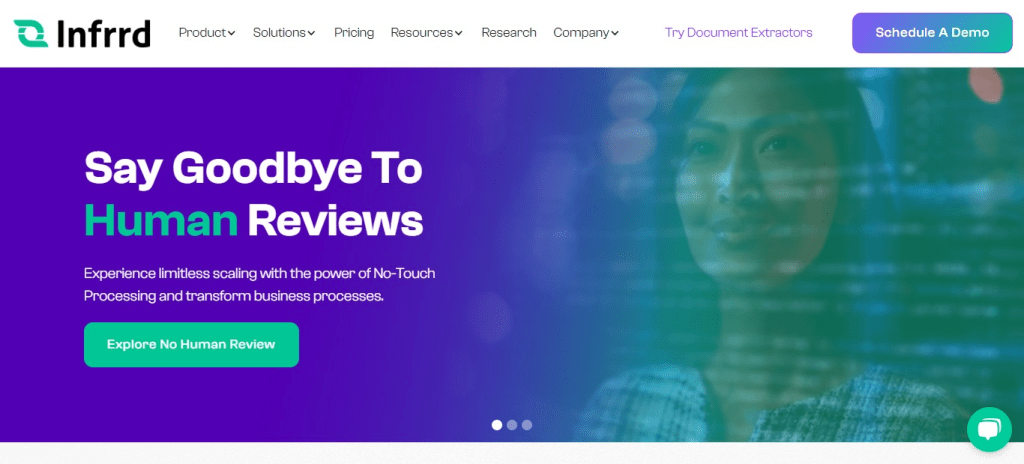
The platform leverages cutting-edge machine learning algorithms to automate complex tasks, streamline workflows, and extract valuable insights from unstructured data. Infrrd’s commitment to accuracy and efficiency is evident in its ability to handle diverse data types and formats, making it a versatile solution for organizations seeking to optimize their operations.
With a focus on enhancing productivity and reducing manual efforts, Infrrd continues to redefine the possibilities of intelligent automation, contributing to a more streamlined and data-driven future for businesses worldwide. As it reaches this milestone, Infrrd remains at the forefront of innovation, driving advancements in AI and automation.
19. BigML
BigML stands tall as a formidable AI-driven machine learning platform, renowned for its commitment to democratizing machine learning for businesses of all sizes. BigML provides a user-friendly interface coupled with powerful machine learning capabilities, making it accessible to both experts and novices in the field.
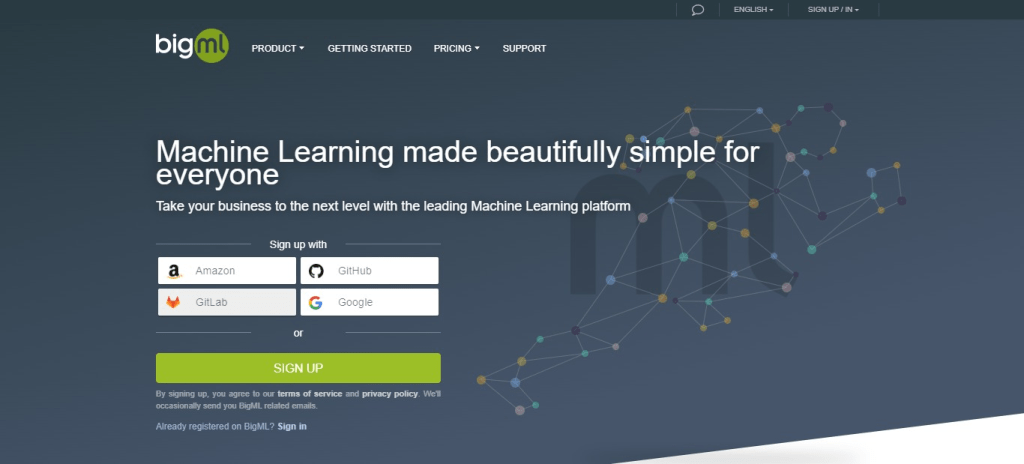
The platform’s emphasis on simplicity and transparency sets it apart, allowing users to easily create, evaluate, and deploy machine learning models. With a focus on automation and scalability, BigML facilitates seamless integration into various business processes, enabling organizations to harness the predictive power of machine learning for data-driven decision-making. As BigML marks this milestone, it continues to be a driving force in making machine learning accessible, understandable, and impactful, shaping the landscape of AI adoption across industries.
20. Petuum (Best Ai-driven Machine Learning Platforms)
Petuum, celebrating its one-year anniversary, has firmly established itself as a leading AI-driven machine learning platform, specializing in distributed machine learning and artificial intelligence solutions.
Known for its scalability and efficiency, Petuum empowers organizations to deploy machine learning models at scale, facilitating the seamless integration of AI into various applications.
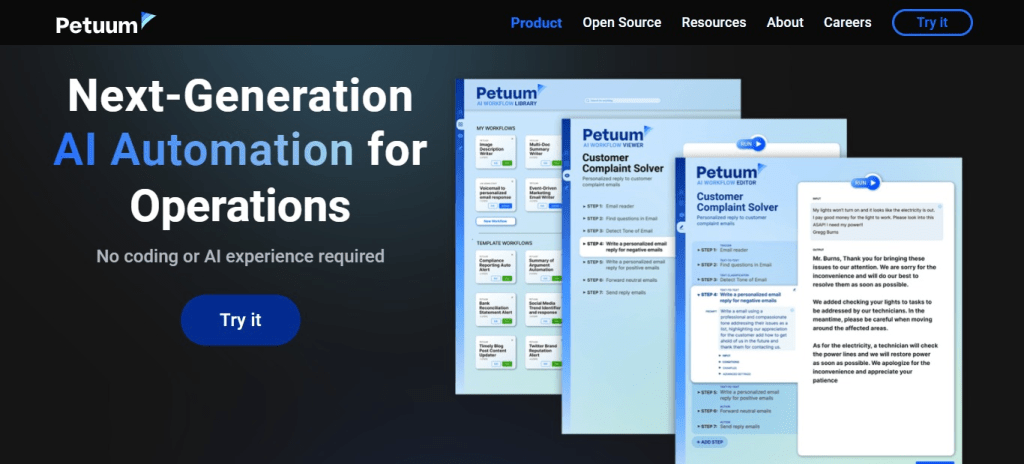
The platform excels in handling large and complex datasets, making it a preferred choice for industries such as finance, healthcare, and manufacturing. Petuum’s commitment to advancing the field of machine learning is evident in its innovative technologies, including automated machine learning (AutoML) and federated learning.
As it reaches this significant milestone, Petuum continues to contribute to the evolution of AI, providing businesses with the tools and capabilities to unlock new insights, optimize processes, and drive transformative outcomes in the ever-expanding landscape of artificial intelligence.
Features of Best Ai-driven Machine Learning Platforms
Flexibility and Framework Support
Support for popular deep learning frameworks such as TensorFlow, PyTorch, and Keras, offering flexibility in model development.
Scalability
Distributed computing capabilities for handling large datasets and scaling models horizontally. Integration with cloud services to leverage scalable resources.
Data Preparation and Exploration
Robust tools for data preprocessing, cleaning, and exploration. Visualization tools to gain insights into datasets.
Model Training
Implementation of optimization algorithms for efficient model training. GPU acceleration support for faster training times.
Model Deployment
Containerization for deploying models as containers, ensuring portability. Serverless deployment options for simplified scalability and management.
Monitoring and Logging
Comprehensive monitoring of model performance during deployment. Logging and auditing capabilities for tracking model behavior and predictions.
AutoML (Automated Machine Learning)
Automated feature engineering to simplify feature selection. Hyperparameter optimization for improved model performance.
Interpretability and Explainability
Tools for interpreting and explaining model predictions, enhancing transparency.
Collaboration and Version Control
Integration with version control systems for tracking changes in models and code. Collaboration tools to support teamwork within the platform.
Security and Compliance
Robust encryption mechanisms to ensure the security of sensitive data. Adherence to industry-specific regulations and compliance standards.
Integration with Development Environments
Compatibility with popular integrated development environments (IDEs) for a seamless development experience.
Community and Support
Active community forums for users to seek advice, share knowledge, and troubleshoot issues. Professional support services for critical problem resolution.
Experiment Tracking and Management
Tools for tracking and logging experiments to facilitate reproducibility. Model versioning system for tracking changes over time.
Cost Management
Tools for estimating and managing the costs associated with using computational resources.
AI Marketplaces
Integration with marketplaces for accessing pre-trained models and algorithms.
Natural Language Processing (NLP) Capabilities
Native support or integration with NLP tools for text-based data analysis.
Computer Vision Capabilities
Support for computer vision tasks, including image recognition and object detection.
Pros & Cons of Best Ai-driven Machine Learning Platforms
Pros:
Robust Frameworks: Top platforms facilitate the building of a vast array of machine learning models by supporting robust and adaptable deep learning frameworks like PyTorch and TensorFlow.
Scalability: Users can efficiently handle massive datasets and sophisticated models thanks to the seamless scalability made possible by cloud integration and distributed computing capabilities.
Rich Set of Tools: An end-to-end machine learning process is streamlined by the comprehensive tools available for data preparation, exploration, model training, and deployment.
Community help: Users of open-source platforms can access a multitude of materials, tutorials, and community-driven help thanks to the active and thriving communities that surround them.
AutoML Capabilities: The process of developing a model is streamlined and expedited by automated machine learning features, such as automated feature engineering and hyperparameter optimization.
Interpretability: To increase openness and confidence in machine learning models, platforms frequently come with tools for deciphering and understanding model predictions.
Security and Compliance: Strict industry rules are followed and sensitive data is protected thanks to strong security features and compliance controls.
Collaboration Features: Teamwork is supported and collaborative development is facilitated by integration with version control systems and collaboration tools.
Cons:
Complexity and Learning Curve: Users who are unfamiliar with machine learning and deep learning principles may find the advanced features of these platforms to have a steep learning curve.
Resource Intensiveness: Building and implementing sophisticated models can be resource-intensive, requiring a large amount of computing power, which some users may find prohibitive.
Vendor Lock-In: Because of possible vendor lock-in, users who rely significantly on the machine learning capabilities of a particular cloud provider may find it difficult to move platforms.
Overhead: Although cloud-based solutions are scalable, there can be significant overhead, particularly if a lot of computational resources are used.
Restricted modification: Users with extremely specific or unique requirements may find that certain systems have limitations with regard to modification.
Privacy Issues: Using cloud services for machine learning may give rise to privacy issues, especially when handling sensitive data that must stay on-site.
Dependency on Internet Connectivity: Because cloud-based platforms rely on internet connectivity, they may not work well in settings where internet access is spotty or unavailable.
Framework Evolution: Due to the quick development of machine learning frameworks, there may occasionally be compatibility problems or a need to update models and code that already exist.
Best Ai-driven Machine Learning Platforms Conclusion
In conclusion, the landscape of Best Ai-driven Machine Learning Platforms is dynamic and rich with diverse offerings that cater to the evolving needs of researchers, data scientists, and developers. The best platforms showcase a comprehensive set of features, from flexible framework support and scalability to robust tools for data preparation, model training, and deployment. The incorporation of automated machine learning (AutoML), interpretability, and collaboration features underscores the commitment to streamlining and enhancing the end-to-end machine learning workflow.
In addition, the presence of thriving communities and professional services guarantees that users receive the necessary tools and help to effectively manage the intricacies of these platforms. The implementation of security protocols and compliance elements highlights the company’s dedication to responsible handling of sensitive data, tackling important issues related to artificial intelligence.
The top AI-driven machine learning systems continuously upgrade their features and incorporate the newest frameworks, tools, and techniques as the field develops. The focus on adaptability, affordability, and compatibility with well-known development environments indicates a dedication to satisfying the varied needs of customers in a range of sectors and fields.
Best Ai-driven Machine Learning Platforms FAQ
What are some popular open-source AI-driven machine learning platforms?
TensorFlow, PyTorch, and scikit-learn are widely used open-source platforms for AI-driven machine learning. TensorFlow and PyTorch, in particular, are renowned for their flexibility and support for deep learning.
Which platforms are known for their scalability in handling large datasets and models?
Cloud-based platforms such as Microsoft Azure Machine Learning, Amazon SageMaker, and Google Cloud AI are recognized for their scalability, enabling users to efficiently handle large datasets and complex machine learning models.
What features contribute to the interpretability of machine learning models?
Platforms often incorporate tools for model interpretability, including techniques like LIME or SHAP values. Features such as integrated visualization tools and model explanation capabilities enhance transparency and interpretability.
How do AI-driven machine learning platforms address security concerns?
Leading platforms implement robust security measures, including encryption mechanisms for sensitive data and adherence to compliance standards. Additionally, cloud platforms often provide secure environments with access controls.
Are there platforms with low-code or no-code options for users with limited coding experience?
Yes, some platforms offer low-code or no-code interfaces, making machine learning accessible to users with varying levels of technical expertise. These user-friendly interfaces simplify the development and deployment of machine learning models.
What role do AI marketplaces play in these platforms?
AI marketplaces, integrated into platforms like Microsoft Azure and AWS, provide users with access to pre-trained models, algorithms, and other resources. This facilitates the rapid development and deployment of machine learning solutions.














